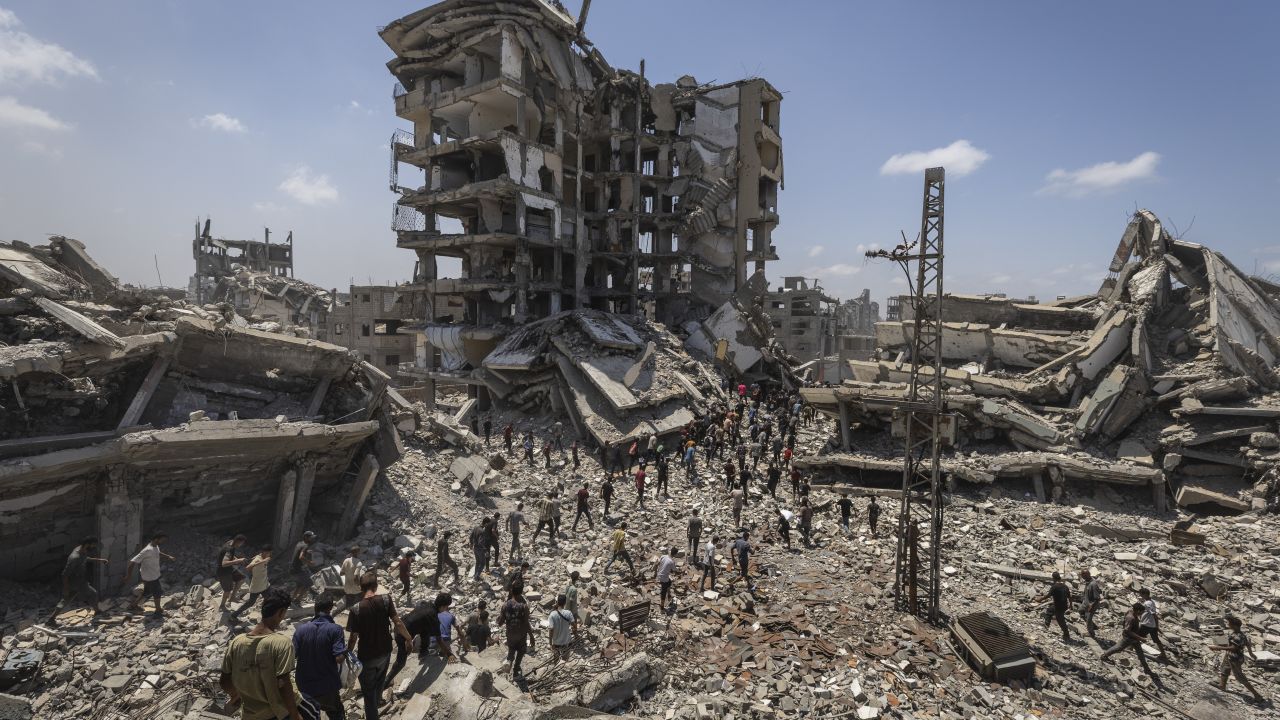Health
Former Negotiator Analyzes Challenges of Gaza City Occupation

Former U.S. State Department Middle East negotiator Aaron David Miller has raised significant concerns regarding Israeli Prime Minister Benjamin Netanyahu’s proposal to occupy Gaza City. Miller emphasized that such an operation would face numerous complications that could challenge its feasibility and effectiveness.
Miller’s analysis comes as tensions escalate in the region, with the Israeli Defense Forces (IDF) considering military options in response to ongoing conflicts with Hamas. He highlighted that occupying a densely populated urban area like Gaza City would present logistical, military, and humanitarian challenges.
Logistical and Military Complexities
According to Miller, one of the primary concerns is the sheer scale of the operation. Gaza City is home to approximately 600,000 residents, making it one of the most densely populated areas in the world. The complexities of urban warfare mean that any military operation would require extensive resources and careful planning to minimize civilian casualties.
“The operational challenges in an urban environment are immense,” Miller stated. “You’re not just dealing with a conventional army; you’re dealing with a network of tunnels, hidden weapons caches, and a population that may not support your presence.”
The IDF’s capacity to navigate these challenges could be severely tested. Miller pointed out that past military engagements in urban settings have often resulted in protracted conflicts, raising questions about the duration and sustainability of an occupation.
Humanitarian Concerns and Political Implications
Beyond military logistics, there are pressing humanitarian concerns. Miller noted that an occupation might lead to significant civilian suffering and could exacerbate the humanitarian crisis in Gaza. Reports indicate that the region is already facing shortages of essential supplies, including food, water, and medical services.
Miller warned that any perceived Israeli overreach could further alienate the Palestinian population and fuel anti-Israel sentiments both locally and internationally. “The optics of occupying Gaza City could be disastrous,” he explained, suggesting that Israel must consider the long-term political ramifications of such an action.
In addition, the international community’s response could complicate matters further. With various countries closely monitoring developments, any military escalation might lead to diplomatic fallout. Miller emphasized that the Israeli government must weigh the potential benefits of occupation against the risks of increased global condemnation and isolation.
As the situation in the region continues to unfold, the challenges outlined by Miller serve as a reminder of the complexities involved in military operations within urban environments and the broader implications such actions may have on peace and stability in the Middle East.
-

 Lifestyle2 weeks ago
Lifestyle2 weeks agoLibraries Challenge Rising E-Book Costs Amid Growing Demand
-

 Lifestyle1 week ago
Lifestyle1 week agoSave Your Split Tomatoes: Expert Tips for Gardeners
-

 Sports1 week ago
Sports1 week agoLiverpool Secures Agreement to Sign Young Striker Will Wright
-

 Lifestyle1 week ago
Lifestyle1 week agoPrincess Beatrice’s Daughter Athena Joins Siblings at London Parade
-

 Sports7 days ago
Sports7 days agoTyreek Hill Responds to Tua Tagovailoa’s Comments on Team Dynamics
-

 Science2 weeks ago
Science2 weeks agoTom Lehrer, Pioneering Satirist and Musician, Dies at 97
-

 World6 days ago
World6 days agoWinter Storms Lash New South Wales with Snow, Flood Risks
-

 World2 weeks ago
World2 weeks agoSwingathon Festival Draws Nearly 1,000 Attendees in Allington
-

 Lifestyle2 weeks ago
Lifestyle2 weeks agoNigeria Claims 10th African Championship Title with Victory Over Morocco
-

 Politics2 weeks ago
Politics2 weeks agoNorth Dakota Woman Dies in Lake Crash Following Highway Incident
-

 Science2 weeks ago
Science2 weeks agoTrump Administration Moves to Repeal Key Climate Regulation
-

 Business2 weeks ago
Business2 weeks agoSoFi Technologies Shares Slip 2% Following Insider Stock Sale









